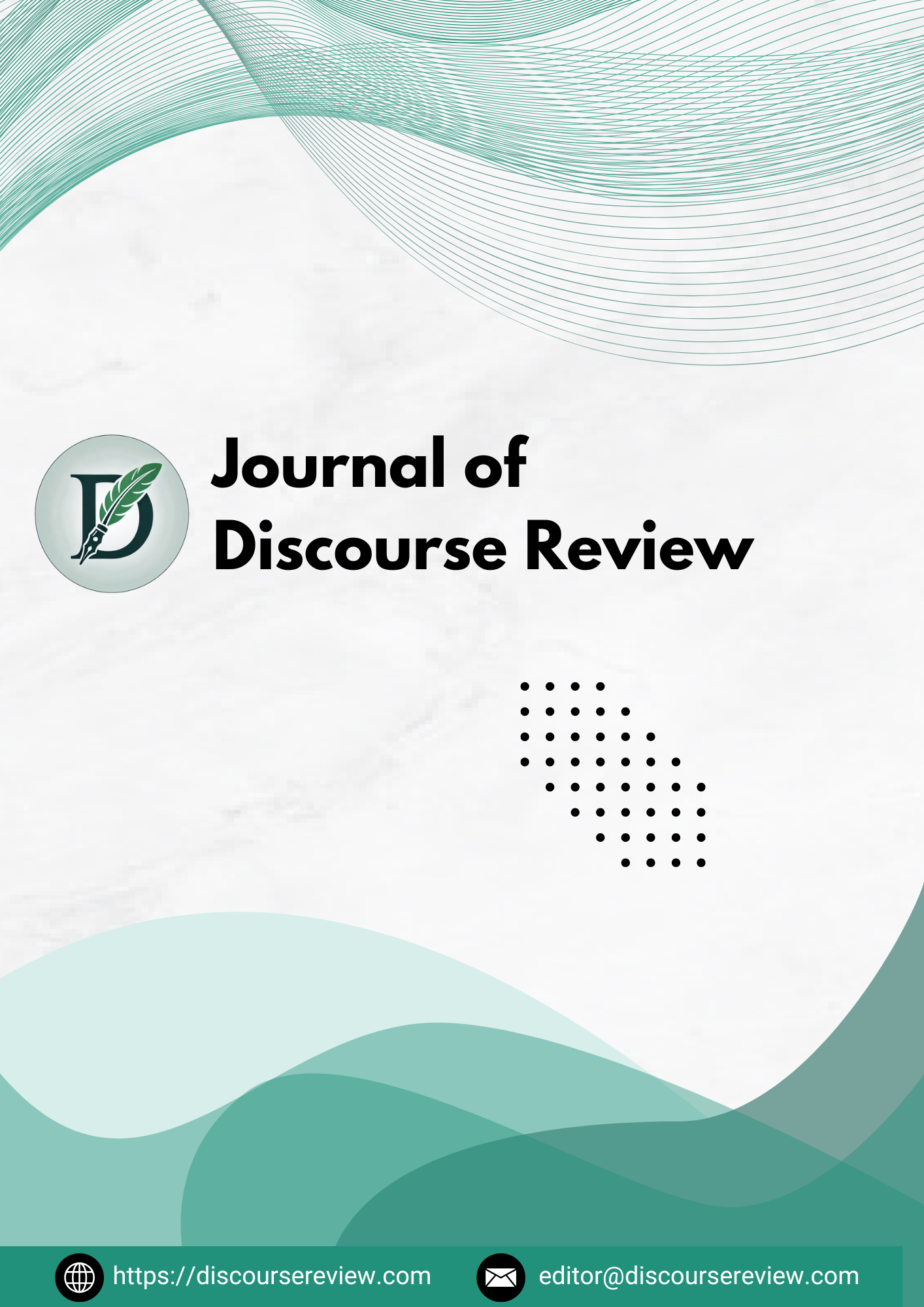
Journal of Discourse Review
Open Access Humanitarian Scholarship
7 days
Time to first decision

Open Access Humanitarian Scholarship
Time to first decision
Volume: 1 Issue: 2
Year: 2025, Page: 201-208,
Received: June 15, 2025 Accepted: June 30, 2025 Published: July 29, 2025
Periodicals play a significant role in shaping public opinion and influencing society as a media product, a tool of the culture industry, and a communication state apparatus. They have a broad societal impact, instilling specific ideas by disseminating narratives through the content they publish and their language. This paper employs critical discourse analysis (CDA) to examine how the periodical 'Organiser' utilises discourse to influence its readers. CDA offers a more profound understanding of the complex relationship between text and the world. The paper argues that the periodical 'Organiser' promotes dominant Hindutva ideology, culture, and narratives while employing various mechanisms to maintain its influence. The periodical content fosters socio-political awareness and simultaneously shapes readers' mindsets. It adheres to traditional views on gender and lacks a policy on using gender-neutral language. Moreover, it emphasises themes such as Hindu nationalism, patriotism, and, to some extent, jingoism. Frequently using "Bharat" instead of "India" is a deliberate choice, illustrating how dominant ideologies can alter public perception. The word choices are intentional and reflect a well-thought-out strategy, rather than mere afterthoughts. CDA reveals periodicals' perspectives on gender equality. Furthermore, the paper argues that media discourse, particularly in 'Organiser', should be critically analysed through tools like CDA to uncover biases, hidden ideologies, and exclusions perpetuated by societal power structures.
Keywords: periodicals, gender ideology, language, narratives, cultural industry.
Althusser, L. (1971). Lenin and philosophy and other essays. London: New Left Books; New York: Monthly Review Press.
Adorno, T., & Horkheimer, M. (1944). The culture industry: Enlightenment as mass deception. Frankfurt School.
Bloor, M., & Bloor, T. (2013). The practice of critical discourse analysis. Routledge.
Chomsky, N. (2002). Media control: The spectacular achievements of propaganda. Seven Stories Press.
Chomsky, N., & Herman, E. (1988). Manufacturing consent: The political economy of the mass media. Pantheon Books.
Encyclopedia Britannica | Britannica. (n.d.). Encyclopedia Britannica. https://www.britannica.com/
Fairclough, N. (1989). Language and power. Longman Inc.
Fairclough, N. (1992). Intertextuality in critical discourse analysis. In J. L. D. Bloome (Ed.), Linguistics and education (Vols. 4, Issues 3-4, pp. 269-293). School of Education, The University of Massachusetts at Amherst.
Fairclough, N., & Wodak, R. (1997). Critical discourse analysis. In T. A. (Ed.), Discourse studies: A multidisciplinary introduction (pp. 258-284). Sage.
Foucault, M. (1988). Power/knowledge. Random House.
Gramsci, A. (1971). Selections from the prison notebooks. Quentin Hoare and Geoffrey Nowell Smith (New York, 1971), PP-12.
Henry, F., & Tator, C. (2002). Discourses of domination: Racial bias in the Canadian English-language press. University of Toronto.
Horkheimer, M., & Adorno, T. (1972). Dialectic of Enlightenment.
Kristeva, J. (1980). Word, dialogue and novel. In L. S. (Ed.), Desire in language: A semiotic approach to literature and art (pp. 64-91). Columbia University Press.
Spender, D. (1980). Man-made language. Routledge and Kegan Paul.
Weatherall, A. (2002). Gender, language and discourse. Routledge.
World Health Organisation. (n.d.). Retrieved September 24, 2024
© 2025 JDR Academic Trust. This is an open-access publication distributed under the terms of the Creative Commons Attribution 4.0 International License (CC BY 4.0). https://creativecommons.org/licenses/by/4.0
Warekar, S. S., Gore. S. & Chavan, D. D. (2025). A Thoughtful Critical Discourse Analysis of the 'Organiser' Periodical through the Lens of Gender and Ideology. Journal of Discourse Review, 1(2), 201-208.